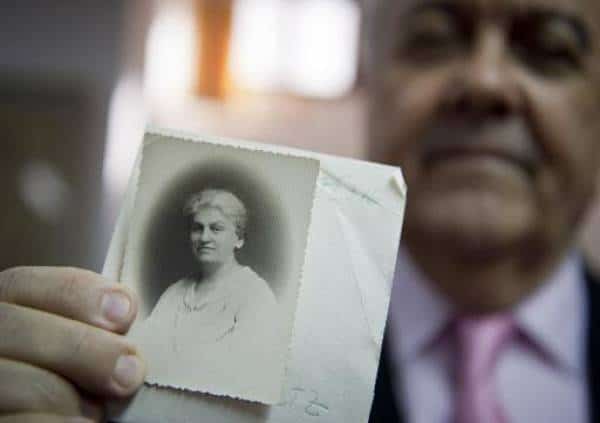GALATI (APP) – In a Romanian town on the Danube river, three sisters in love with great writing jumped for joy whenever the postman delivered a new letter from giants Mark Twain, Emile Zola or Jules Verne.
Born in the second half of the 19th century, Antonie, Rovena and Emilia Schwarz devoted their lives to reading and building a treasure trove of autographs and photos, said Ilie Zanfir, director of the V.A. Urechia library in the eastern city of Galati.
The youngest sister, Emilia, donated 714 letters to the library in 1965.
Zanfir told AFP the first letter dates from 1891 and the last from 1961, but the majority of exchanges occurred during the women’s youth, between the end of the 19th century and the beginning of the 20th.
Little is known about the women’s private lives, except that they are of Jewish origin, never had any children and that they founded and ran a school dedicated to giving young girls an education.
In their spare time they wrote to famous writers, seeking their advice on reading and current affairs. Not without a little cheek, they also asked them for their photos.
– Pages of correspondence –
Delighted, the literary stars wrote back. Their replies varied in length from just a few lines to a whole page of reflections on the role of women in society, literature or astronomy, the great passion of the first-born Antonie, who died in 1912 at an unknown age.
In response to Rovena, who died in 1955 aged 87, French writer Emile Zola (1840-1902) wrote: “My advice to you is that you should read my work when either your parents or your husband allow you to.”
In January 1896, French novelist Jules Verne, who is known for his lasting influence on the science fiction genre, apologised for refusing to send his picture: “At my age, I won’t disturb the sun any more to ask it to fix my traits on the viewfinder.”
Novelist Mark Twain, whose “Adventures of Huckleberry Finn” has been named “the great American novel”, also politely refused, but “with pleasure”, he sent an autograph instead.
Just months before his death, Alexandre Dumas, fils — son of the author of “The Three Musketeers” — wrote to Antonie: “Whoever has loved twice hasn’t loved at all.”
Asked how the women managed to find the celebrities’ addresses, a French expert who has examined a dozen of Rovena’s letters kept at the Mejanes library at Aix-en-Provence said they likely consulted Paris’ main directories.
“‘Tout Paris’ and ‘Paris Hachette’ are both… rich in personal data,” said Herve Duchene, referring to city directories of the time, who teaches at the University of Burgundy.
– Advocates against anti-semitism –
Exchanges on anti-semitism also had a special place in the letters, at the height of the Dreyfus affair that divided France.
Captain Alfred Dreyfus, a young French soldier of Jewish descent, was wrongly convicted of treason, and it later emerged that his sentencing was rooted purely in anti-semitism.
Rovena also appealed to her influential correspondents to speak out against the plight of Jews in Romania.
She explained how dozens of Jews were expelled from their homes in Galati in 1900, forcing them to take refuge in the town synagogue and cemetery.
She asked Zola to expose the tragedy in a daily newspaper, without success.
Galati was then home to 60,000 people, including 13,000 Jews. Today, the port town has a population of 250,000, including only about 100 Jews.
Years after the sisters’ deaths, local researcher Delia Pohrib says the correspondence enriches “Europe’s cultural heritage”.
She told AFP the letters, which can be read one by one on demand, are “a treasure inherited by Galati”.
Visiting the Galati library, Dragos Ciuperca, 15, says he dreams of following the Schwarz sisters’ example and contacting his favourite actor Jean Reno.
But Ciuperca isn’t too hopeful that the French actor will ever write back.
“He’s very busy, so I think his secretary might reply to me,” he says.














